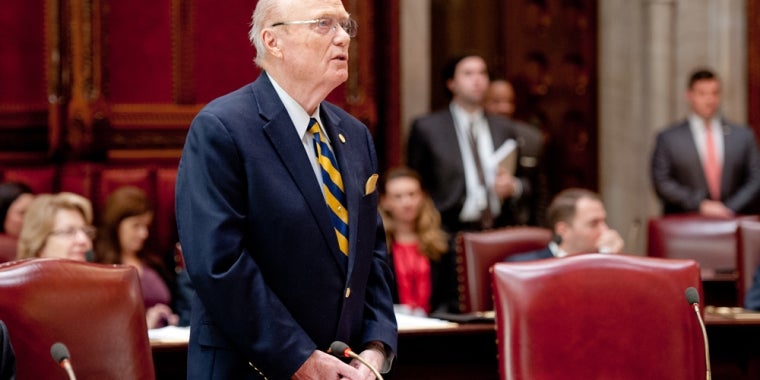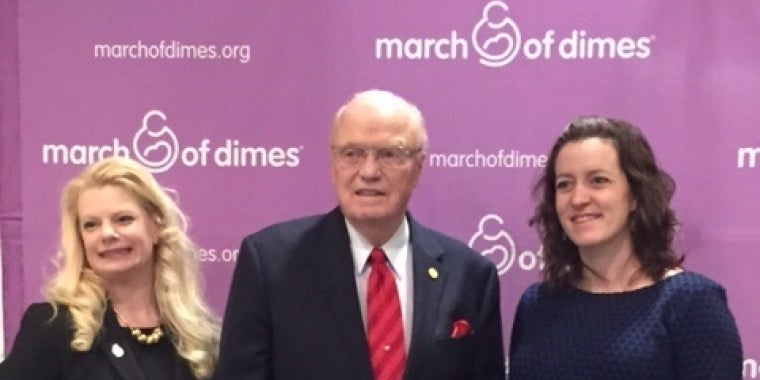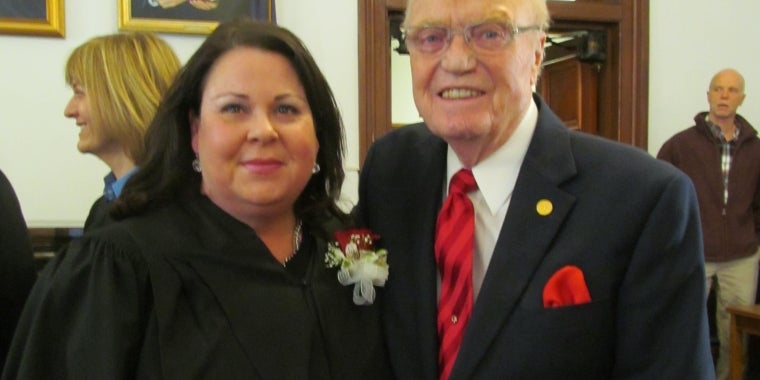
Senator Farley Notes Monday Is Elizabeth Cady Stanton Day
State Senator Hugh T. Farley (R, C - Schenectady) reminds constituents that November 12th isElizabeth Cady Stanton Day in New York State.
November 12th was picked as the day of commemoration because Ms. Stanton was born on November 12th, 1815.
"Not only is she important in the history of Fulton County and New York State, Elizabeth Cady Stanton played a vital role in our Nation's history," Senator Farley said.
As former teacher and enthusiastic historic buff, Senator Farley helps promote local history and tourism. Ms. Stanton's biography is included in Senator Farley's "Women of Distinction" exhibit that is on display yearly in March at the upper level of the Riverfront Center in Amsterdam and is highlighted in his publication Honoring Women's History Month, Women of Distinction.
"She is mainly known for her work with the Women's Rights Movement, but there is so much more to this amazing woman," Senator Farley said.
Her father Daniel Cady, a well-educated man who served as a lawyer, State legislator, Congressman, district attorney and judge, may have introduced his daughter to the law but also held the belief that too much education in women would discourage suitors. While it was fun for Elizabeth to debate law clerks, she was also learning the not-so-fun lesson that society did not consider women equal to men. Elizabeth was one of eleven children, of whom five died in infancy or in early childhood. Between this major devastation and losing his son at the age of 20, Daniel Cady suffered a great depression and has been quoted as saying to Elizabeth that he wished she had been born a boy. As a result, Elizabeth spent many years trying to compensate for her brother's death by attempting to excel in all activities and interests her brother once held.
She was educated at Johnstown Academy and at Emma Willard's Troy Female Seminary. While she was lucky to be born into a privileged life that allowed her to obtain an education, unlike most of the young ladies of her time, she was not lucky enough to escape the sexism that permeated her society, Senator Farley noted.
"A humanitarian, Elizabeth Cady Stanton was concerned for all people, all races to be equal," Senator Farley said. "She was passionate about her work and was determined to help others."
Elizabeth spent numerous hours with her cousin, the social reformer and abolitionist Gerrit Smith, learning about anti-slavery and temperance societies. Through these meetings, she met her future husband Henry Stanton. Shortly after they married, the Stantons traveled to London in the 1840s to attend the World Anti-Slavery Convention. Although Henry was a delegate, Elizabeth was denied a seat at the convention because she was a woman.
"Between her father wishing she were a son and her being denied opportunities and rights simply because she was a woman, Elizabeth developed a strong commitment to promoting equality," Senator Farley said.
The Stantons moved from the Boston area to Seneca Falls, New York, in 1847, where Elizabeth felt stifled by the lack of what she called an intellectual community. At this time, she began actively pursuing her passions for women's rights. She helped spearhead the first women's rights convention in Seneca Falls in 1848 and delivered the Declaration of Rights and Sentiments. Also in 1848, she circulated petitions that convinced the New York State Legislature to pass a bill granting property rights to married women.
In 1854, Elizabeth received an unprecedented invitation to address the New York State Legislature. Her advocacy resulted in the passage of new laws that granted women the rights to their wages and to equal guardianship of their children. She helped organize the National Woman Suffrage Association in 1869, and in 1878 she drafted a federal suffrage amendment that was introduced repeatedly in Congress. The amendment, in substantially the same language, was finally adopted in 1919.
Elizabeth Cady Stanton died in 1902, almost 20 years before women were able to vote, but her efforts helped to change laws and attitudes. On November 2, 1920, some 8 million women legally voted in the United States for the first time, Senator Farley said. By designating November 12th as Elizabeth Cady Stanton Day, New York State seeks to honor and recognize the contributions that she made to our State and Nation.
"While she was unable to vote, her legacy certainly continued on and continues today to touch strong women," Senator Farley said. He noted that current Johnstown Mayor Sarah Slingerland used a historical Bible signed by Elizabeth when she was sworn into office in January 2006.



